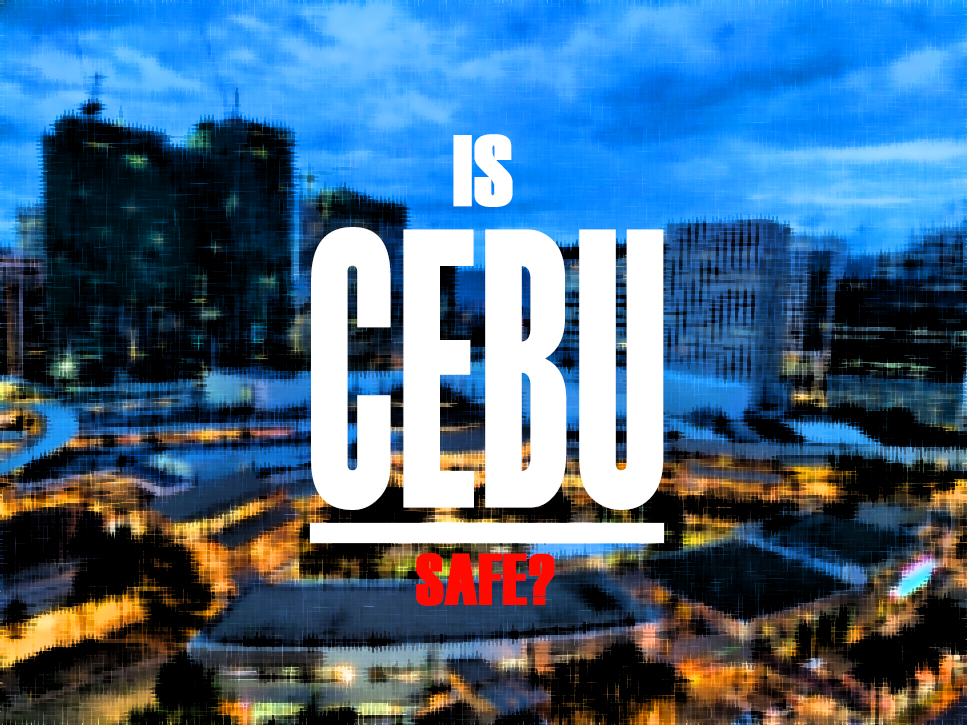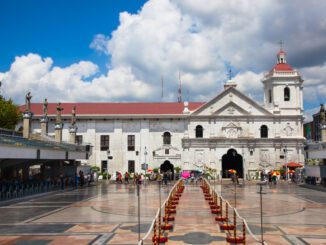
Walking down Colon Street is an experience in itself. The Streets filled with shoppers darting in out of the run-down stores lining the road. Vendors fill the sidewalks, calling out to potential customers, hoping to offload some of their goods ranging from cheap electronics to pet animals.
The air is filled with the sound of a distinct style of techno music you would only find in The Philippines, the locals know what I’m talking about. The whole street is dominated by a stream of jeepneys that pass through Colon Street throughout the day, as the street is the main artery running through Cebu Cities commercial district.
Colon Street has a lot more significance in the history of the country than most people seem to realise. The street is actually believed to be the oldest in the country. Its origins have been traced back to the town plan created by Miguel Lopez de Legazpi. The street was created as a part of the first Spanish settlement in Cebu, the Villa de San Miguel or St. Michael’s Town.
The street was named after Cristóbal Colón – The Spanish translation for Christopher Columbus – the Italian explorer known for his discovery of the “New World”, Christopher Columbus had been sailing for the Spanish monarchy despite his Italian heritage.
The evolution of Colon Street
Colon Street looks a lot different to what it had been back during its humble beginnings. Despite its run-down look plaguing the street these days, it once was the heart of Cebu City’s shopping and business activity. Before the ’90s the street was home to many fashionable shops, offices, and cinemas. Cebuanos would flock to commercial establishments in Colon like Plaza Fair, Gazini Plaza, Rosita’s, and Gaw Trading.
But once we entered the 90’s, the mall culture of America also found its way into The Philippines. Malls such as SM and Ayala began to spring up in other areas of Cebu City. This began to threaten businesses in Colon as shoppers moved towards Malls due to their air conditioning and relaxing ambience.
Colon Street had also been known as being a hub for prostitution. Many short-stay motels began to set up in the area offering cheap rates to for the booming industry. Colon Street is also home to many of Cebus universities. As Colon was previously known as a business hub, many universities were built in the area. These include the University of Cebu, University of the Visayas, University of San Carlos, and the University of San Jose-Recoletos.

Colon Street today
Colon Street still manages to attract large crowds on a daily basis. In recent years Colon Street has come back to life due to shoppers looking for cheap merchandise and reasonably priced goods from the many bargain stores. You can find almost anything in Colon, you can also be sure that the price will be a lot cheaper than what you would find in some of Cebus major malls.
Colon is also a crossroads for most of the major jeepney routes in Cebu. You will find it is often clogged with traffic, as the many jeepneys drop off and pick up passengers as they transit through the area. Jeepneys are available almost any time of day or night as Colon is a major hub within Cebu City; you will find even late at night there will still be many jeepneys available near Gaisano Metro Mall.
The street had also developed a bad reputation due to the snatchers in the area. Though some of the cities management have been fighting to shake that reputation. The roving police presence in the area has helped slowly re-establish security in the area, in turn helping to return the areas good reputation.
Recognising the history of Colon
An obelisk detailing Colon’s historical significance stands at its northern end. On either side of the street are markers on lampposts that contain information about the establishments or houses that used to be in the area. After the cities recognition as a site of historical significance in 1999; these markers were put in place to mark the significance of the landmarks.
The street is also connected to the old Chinese district of Cebu, Parian. Parian was where wealthy Filipino-Chinese businessmen used to live and sell their merchandise. The name Parian reportedly comes from “paripari”, which means “to sell or barter”.
Colon Street is a short jeepney ride from the centre of Cebu City. From Osmena Circle you can take a short jeepney ride there or simply take a taxi. It’s one of the most famous landmarks in Cebu, so you should not have trouble making your way there.





https://www.airbnb.com/experiences/1501166
Please Check Out – Cebu City Historical Street Tour